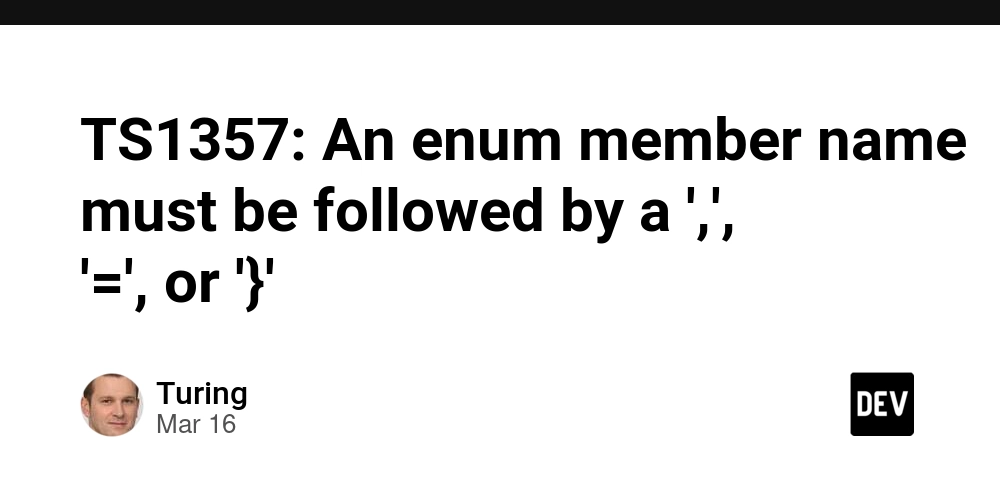GitHub Follower Analysis: Discovering Your One-Way Connections
Have you ever wondered which GitHub developers you're following don't reciprocate the connection? Unlike social media platforms that clearly show mutual connections, GitHub doesn't provide an easy way to see who follows you back. This article explains a fun Ruby script that solves this problem by revealing your one-sided GitHub relationships. The Social Imbalance on GitHub GitHub, while primarily a code-hosting platform, also functions as a social network for developers. You can follow other developers to stay updated on their activities, contributions, and projects. However, GitHub's interface doesn't explicitly show whether someone you follow also follows you back. This asymmetry creates an interesting dynamic - you might be following hundreds of developers, but how many of them are following you in return? The script we're discussing today bridges this information gap. The Script #!/usr/bin/env ruby require 'net/http' require 'json' require 'optparse' # Class that handles checking GitHub follower relationships class GitHubFollowerChecker BASE_URL = "https://api.github.com" # Initialize with username and optional authentication token def initialize(username, token = nil) @username = username @token = token @headers = { 'Accept' => 'application/vnd.github.v3+json' } @headers['Authorization'] = "token #{token}" if token end # Get all users the specified user is following def get_following fetch_all_pages("#{BASE_URL}/users/#{@username}/following") end # Get all followers of the specified user def get_followers fetch_all_pages("#{BASE_URL}/users/#{@username}/followers") end # Find users you follow who don't follow you back def find_not_following_back puts "Fetching users you follow..." following = get_following puts "Fetching your followers..." followers = get_followers following_usernames = following.map { |user| user['login'] } follower_usernames = followers.map { |user| user['login'] } puts "Analyzing relationships..." following_usernames - follower_usernames end private # Helper method to fetch all pages of results from the GitHub API def fetch_all_pages(url, results = []) uri = URI(url) begin response = Net::HTTP.start(uri.hostname, uri.port, use_ssl: true) do |http| request = Net::HTTP::Get.new(uri) @headers.each { |key, value| request[key] = value } http.request(request) end case response.code when '200' page_results = JSON.parse(response.body) results.concat(page_results) # Handle pagination using the Link header if response['link']&.include?('rel="next"') next_link = response['link'].split(',').find { |link| link.include?('rel="next"') } if next_link next_url = next_link.match(//)[1] print "." # Show progress fetch_all_pages(next_url, results) end end when '401' puts "\nError: Authentication failed. Check your token." exit 1 when '403' puts "\nError: Rate limit exceeded. Use a token or wait before trying again." exit 1 when '404' puts "\nError: User '#{@username}' not found." exit 1 else puts "\nError: #{response.code} - #{response.message}" puts JSON.parse(response.body)['message'] if response.body exit 1 end rescue SocketError puts "\nError: Could not connect to GitHub. Check your internet connection." exit 1 rescue JSON::ParserError puts "\nError: Invalid response from GitHub." exit 1 end results end end # Main script execution def main # Parse command line options options = {} OptionParser.new do |opts| opts.banner = "Usage: github_follower_checker.rb -u USERNAME [-t TOKEN]" opts.on("-u", "--username USERNAME", "GitHub username") do |username| options[:username] = username end opts.on("-t", "--token TOKEN", "GitHub personal access token (recommended to avoid rate limits)") do |token| options[:token] = token end opts.on("-h", "--help", "Show this help message") do puts opts exit end end.parse! # Validate required parameters if options[:username].nil? puts "Error: GitHub username is required" puts "Usage: github_follower_checker.rb -u USERNAME [-t TOKEN]" exit 1 end # Execute the check checker = GitHubFollowerChecker.new(options[:username], options[:token]) not_following_back = checker.find_not_following_back # Display results puts "\nGitHub users you follow who don't follow you back (#{not_following_back.count}):" if not_following_back.empty? puts "Everyone you follow also follows you back!

Have you ever wondered which GitHub developers you're following don't reciprocate the connection? Unlike social media platforms that clearly show mutual connections, GitHub doesn't provide an easy way to see who follows you back. This article explains a fun Ruby script that solves this problem by revealing your one-sided GitHub relationships.
The Social Imbalance on GitHub
GitHub, while primarily a code-hosting platform, also functions as a social network for developers. You can follow other developers to stay updated on their activities, contributions, and projects. However, GitHub's interface doesn't explicitly show whether someone you follow also follows you back.
This asymmetry creates an interesting dynamic - you might be following hundreds of developers, but how many of them are following you in return? The script we're discussing today bridges this information gap.
The Script
#!/usr/bin/env ruby
require 'net/http'
require 'json'
require 'optparse'
# Class that handles checking GitHub follower relationships
class GitHubFollowerChecker
BASE_URL = "https://api.github.com"
# Initialize with username and optional authentication token
def initialize(username, token = nil)
@username = username
@token = token
@headers = { 'Accept' => 'application/vnd.github.v3+json' }
@headers['Authorization'] = "token #{token}" if token
end
# Get all users the specified user is following
def get_following
fetch_all_pages("#{BASE_URL}/users/#{@username}/following")
end
# Get all followers of the specified user
def get_followers
fetch_all_pages("#{BASE_URL}/users/#{@username}/followers")
end
# Find users you follow who don't follow you back
def find_not_following_back
puts "Fetching users you follow..."
following = get_following
puts "Fetching your followers..."
followers = get_followers
following_usernames = following.map { |user| user['login'] }
follower_usernames = followers.map { |user| user['login'] }
puts "Analyzing relationships..."
following_usernames - follower_usernames
end
private
# Helper method to fetch all pages of results from the GitHub API
def fetch_all_pages(url, results = [])
uri = URI(url)
begin
response = Net::HTTP.start(uri.hostname, uri.port, use_ssl: true) do |http|
request = Net::HTTP::Get.new(uri)
@headers.each { |key, value| request[key] = value }
http.request(request)
end
case response.code
when '200'
page_results = JSON.parse(response.body)
results.concat(page_results)
# Handle pagination using the Link header
if response['link']&.include?('rel="next"')
next_link = response['link'].split(',').find { |link| link.include?('rel="next"') }
if next_link
next_url = next_link.match(/<(.+?)>/)[1]
print "." # Show progress
fetch_all_pages(next_url, results)
end
end
when '401'
puts "\nError: Authentication failed. Check your token."
exit 1
when '403'
puts "\nError: Rate limit exceeded. Use a token or wait before trying again."
exit 1
when '404'
puts "\nError: User '#{@username}' not found."
exit 1
else
puts "\nError: #{response.code} - #{response.message}"
puts JSON.parse(response.body)['message'] if response.body
exit 1
end
rescue SocketError
puts "\nError: Could not connect to GitHub. Check your internet connection."
exit 1
rescue JSON::ParserError
puts "\nError: Invalid response from GitHub."
exit 1
end
results
end
end
# Main script execution
def main
# Parse command line options
options = {}
OptionParser.new do |opts|
opts.banner = "Usage: github_follower_checker.rb -u USERNAME [-t TOKEN]"
opts.on("-u", "--username USERNAME", "GitHub username") do |username|
options[:username] = username
end
opts.on("-t", "--token TOKEN", "GitHub personal access token (recommended to avoid rate limits)") do |token|
options[:token] = token
end
opts.on("-h", "--help", "Show this help message") do
puts opts
exit
end
end.parse!
# Validate required parameters
if options[:username].nil?
puts "Error: GitHub username is required"
puts "Usage: github_follower_checker.rb -u USERNAME [-t TOKEN]"
exit 1
end
# Execute the check
checker = GitHubFollowerChecker.new(options[:username], options[:token])
not_following_back = checker.find_not_following_back
# Display results
puts "\nGitHub users you follow who don't follow you back (#{not_following_back.count}):"
if not_following_back.empty?
puts "Everyone you follow also follows you back!










































































































































































![[The AI Show Episode 142]: ChatGPT’s New Image Generator, Studio Ghibli Craze and Backlash, Gemini 2.5, OpenAI Academy, 4o Updates, Vibe Marketing & xAI Acquires X](https://www.marketingaiinstitute.com/hubfs/ep%20142%20cover.png)



























































































































![[FREE EBOOKS] The Kubernetes Bible, The Ultimate Linux Shell Scripting Guide & Four More Best Selling Titles](https://www.javacodegeeks.com/wp-content/uploads/2012/12/jcg-logo.jpg)



![From drop-out to software architect with Jason Lengstorf [Podcast #167]](https://cdn.hashnode.com/res/hashnode/image/upload/v1743796461357/f3d19cd7-e6f5-4d7c-8bfc-eb974bc8da68.png?#)






































































































.png?#)




.jpg?#)































_Christophe_Coat_Alamy.jpg?#)








































































































![Rapidus in Talks With Apple as It Accelerates Toward 2nm Chip Production [Report]](https://www.iclarified.com/images/news/96937/96937/96937-640.jpg)









































































































































